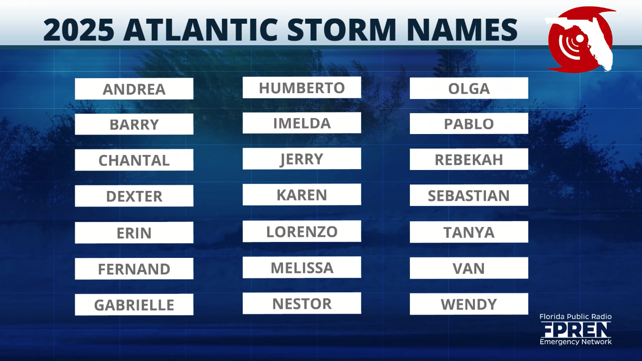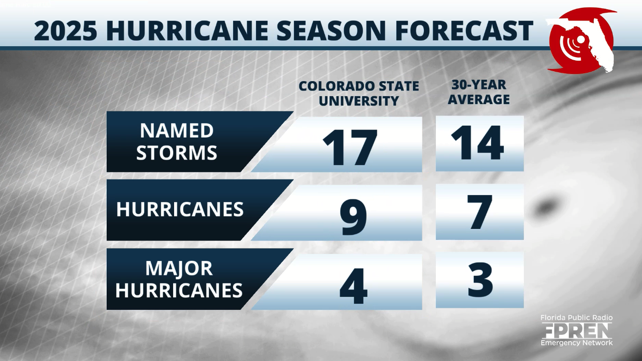Colorado State University on Thursday released its long-awaited hurricane season forecast, calling for an above-average number of storms.
Forecasters predict 17 named storms, nine hurricanes and four major hurricanes.
An average hurricane season consists of 14 named storms, including seven hurricanes and three major hurricanes
Colorado State is one of the most prestigious entities that releases these types of forecasts, with the top entity being the National Hurricane Center, which will release its forecast in late May.
CSU has released hurricane season forecasts since 1984 by the late Bill Gray. His prodégé, Phil Klotzbach, and his team of researchers have continued the tropical research and tropical season forecasts.
The reasoning for this active forecast is mainly the warmer-than-average water temperatures and the absence of El Niño.
Water temperatures feed and fuel storms to develop and ultimately strengthen. The El Niño Southern Oscillation — or ENSO — when present, tends to increase wind shear, which does not allow the storms to continue their building cycle.
La Niña conditions persisted through February, but forecasters predict that ENSO-neutral conditions could develop in the spring and continue through the summer in the Northern Hemisphere.

Last year, we had an above-average hurricane season. There were 18 named storms, 11 of which became hurricanes, and five major hurricanes. Eight hurricanes made landfall, five of which struck the United States.
At this time last year, Colorado State predicted 23 named storms and 11 hurricanes, with five reaching major hurricane status.
Remember that these seasonal forecasts do not tell us or indicate where a storm will make landfall. Therefore, residents are urged to prepare beforehand.
It only takes one storm to make it a busy season for you. Preexisting conditions could make a storm’s impacts worse. Make sure to stay informed throughout the season and with every storm.
Copyright 2025 Storm Center






